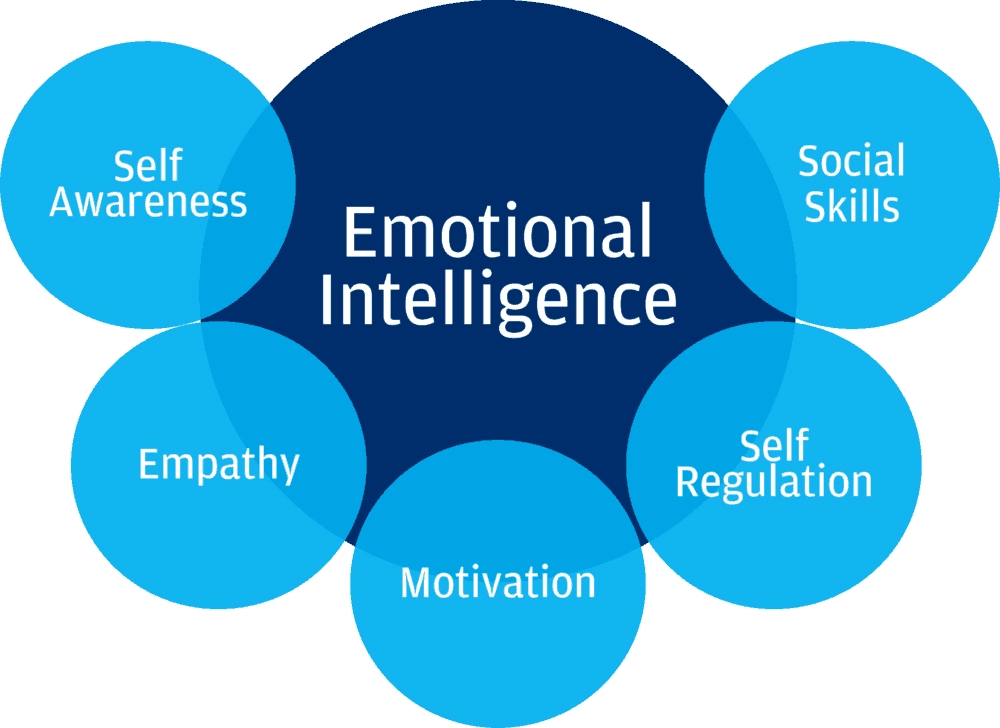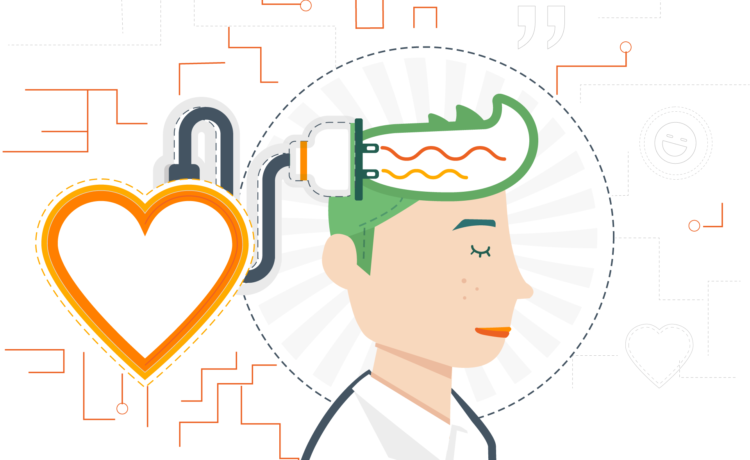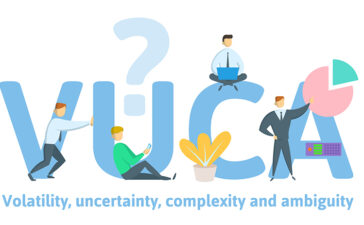When dealing with people, remember you are not dealing with creatures of logic, but with creatures of emotion.
– Dale Carnegie
What is Emotional Intelligence

When one talks about human resources, they talk about that domain of an organization that handles the people but rarely do they understand the importance of the word ‘human’ in the word. While the term ‘emotional intelligence is a widely used word and a concept, there are very few who understand what the term entails. The pandemic turned the world upside down, while claiming many lives and jobs, isolating us from our loved ones, and forcing us to reassess our beliefs and affirmations. Amidst this uncertainty, the only certain thing was the emerging importance of Emotional Intelligence and the need to manage emotions to make a positive impact. Why was this important? Simply because, in such times, it is the ability to understand and better manage your emotions that will help one to be grounded and centred thereby managing those around them effectively and with compassion.
Every day, companies and their stakeholders are impacted by the pandemic’s volatility, racial disparity, economic and social unpredictability, and other global and local structural concerns. And these challenges alert companies on understanding the importance of emotional intelligence more than ever. It is this understanding of EQ quotient that helps people and companies at large, that helps them to make a con distinction between treating their employees humanly and humanely. When employers treat their employees humanly, they provide them with snacks and water breaks.
ER and Human Resourse
But, when they treat them humanely, they address their basic needs like their need to be appreciated. need to belong and need to feel like one is making a meaningful contribution to the company. In the rush on competition and soaring need to achieve profits, it is interesting to note, that how conveniently the goal of meeting human needs often takes a back seat. One might find it curious because when any of us are stewards of an asset like a car, we don’t think of denying the car what it needs for it to work at peak performance. So why disregard human resources? Research has shown that when human needs are met for employees at work: the more they are met, the higher the engagement. Higher engagement is further correlated to increased profitability, which at last is what many companies aim for. In my opinion, EI, Trust, and Empathy are paramount to Productivity, Performance, and Motivation.

In the words of Daniel Goleman, ‘If one’s emotional abilities aren’t at hand if one doesn’t have self-awareness if one is not able to manage your distressing emotions if one can’t have empathy, then no matter how smart you are, you are not going very far. Emotions and people are inextricably linked, and they must be handled with extreme care for the benefit of both employees and businesses. We may have the greatest HR Tech trends as a facilitator for improving efficiency and performance, but we are also working with humans, not machines. HR relates to some of the most emotionally charged events in an employee’s life cycle, beginning with the first day in the office and continuing through talks about remuneration, promotions, complaints, training, and even the last working day. It is crucial to observe, evaluate, and interpret employee emotions throughout these critical junctures to give the necessary assistance. Pandemic made us realize that during difficult times, it is not only the IQ one needs to tap in but also their EQ so that they can lead effectively, build relationships, and ensure support throughout the organization. If anything, pandemic shunned a bright light on leadership shortcomings and areas they needed to improve on centring around the need for an emotional quotient.
Emotional Quotient in HR
Emotional Intelligence refers to one’s ability to understand and manage their emotions and those of others. It is important especially in a corporate structure because you can’t thrive alone. One’s success is related to the organization’s success which correlates with factors like motivation, engagement, belongingness which are building blocks of relations led by people having a high EQ. Highly talented and intelligent people often fail because of poor interpersonal relationships, arrogance, difficulty in leading changes, and agility to adapt, skills which people high on EQ are often familiar with. However, unlike IQ, EQ can be cultivated. Intelligence quotient is something people are born with, at least the optimum level of it, and can enhance or rather work on it only to an extent. Throwback to the time, when the only words associated with emotions were weakness and instability, fast-forwarded today when an organization’ success positively correlates with the emotional quotient its people possess. Feels surreal though, isn’t it?
Emotional Intelligence can be built in many ways. Some of these include recognizing one’s feelings, assessing oneself, listening with compassion and having a sense of social awareness. Being mindful of others is essential for developing EQ. This entails taking your gaze away from the activity at hand and gazing around to see what is going on around you. In our daily lives, we feel a wide range of emotions and when our values and beliefs are challenged by ourselves or others, they become more intense. However, to perform professionally, we frequently need to temporarily regulate these emotions to facilitate easy communication or prevent confrontation. However, regulating these emotions does not imply suppressing them, since this may have a long-term negative impact and lead to stress, with actual feelings leaking through the mask.
Conclusion
It is critical that you attend to your workers’ wants, anxieties, and concerns. It is also crucial that you handle pressing problems and make critical decisions to keep the firm running. The problem however lies that these two tasks seek the use of two completely distinct parts of our brain. And we may become locked in either the network in our brain that allows task-focused concentration needed to address issues or the other network that allows for introspection, compassion coupled with social connection. However, to be most effective in leading and assisting our staff, we require both networks – both IQ and EQ. But before that, it’s imperative one successfully works on their emotion quotient, not for the corporate success but to rank high in the human aspect of life.
“No one cares how much you know until they know how much you care”
– Theodore Roosevelt













